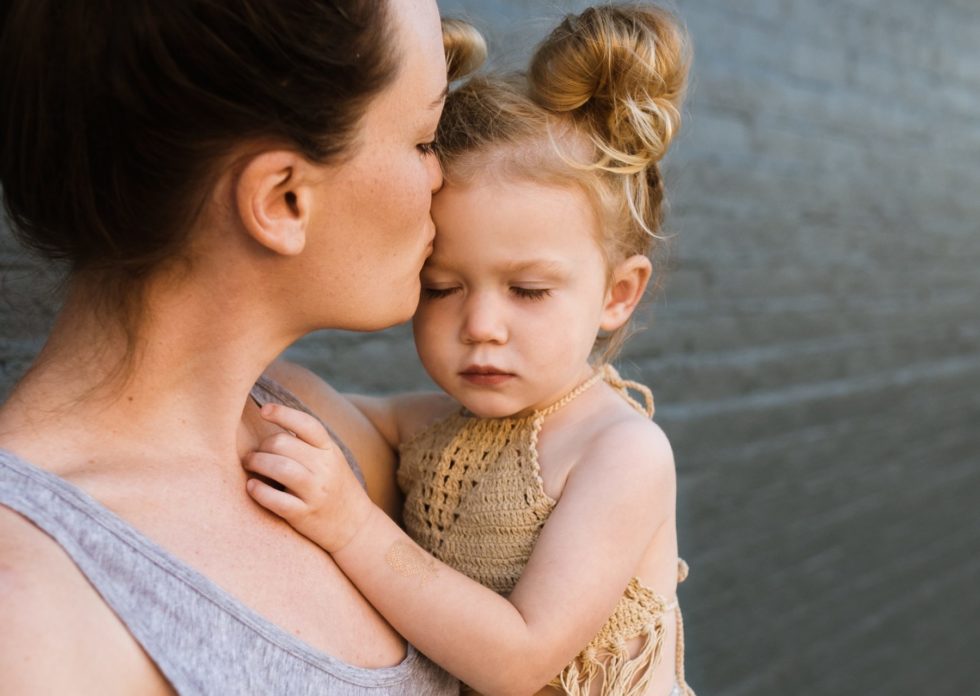I remember my childhood so vividly because I was such an anxious child. Back then there wasn’t much literature on anxiety with children. I was told to “suck it up”, “get over it” and stop being such a baby. In reality all I needed was for somebody to listen, validate that what I was feeling was normal, and help me to overcome my anxieties. We are a product of our upbringing, and I feel that that form of verbal therapy only made my anxiety worse later on in life. In order to break this vicious cycle of repressed anxiety, how do we spot anxiety in children and what are some effective early intervention measures to ensure that we deal with anxiety in children properly?
First and foremost, it is important to understand how our children develop anxiety. It’s always easiest to point the finger at ourselves as parents and take the blame for any difficulties our children might face, but it isn’t that simple. Some of the main causes of anxiety are genetics, brain chemistry, life situations and learned behaviours; monkey see, monkey do.
What is Anxiety?
Anxiety is a normal part of life, especially in childhood. It is a survival instinct that challenges us to fear certain things we don’t feel comfortable with in order preserve life. We tend to weigh all the outcomes and options of a situation or an event and if there is an ounce of doubt or fear we tend to let our imaginations run wild, prohibiting us from proceeding without extreme caution. According to the Meriam-Webster Dictionary, anxiety is “apprehensive uneasiness or nervousness usually over an impending or anticipated ill: a state of being anxious.” It’s important to know the difference between normal anxieties and those of which are more severe. How do you know if anxiety is a problem for your child?
It is easier to teach your child how to manage and cope with their anxieties the earlier you catch it. Anxiety works as a spectrum, where some forms of anxiety are more common while other cases are more severe. Fearful or anxious behaviour is very common is children, especially since there are so many new experiences they are confronted with on a daily basis. Some common anxieties in children are being shy or being constantly worried about being laughed at.
How We Cope With Anxiety At ToBeMe
One of the most common anxieties in children, and we see this everyday at ToBeMe, is being upset before or after drop off at child care… this also includes parents. This is a very normal aspect of starting care. At ToBeMe, we work closely with our families to ensure that every child forms a special bond with their educators to create an environment where they feel comfortable to explore themselves and their surrounding environment. Most children are able to deal with these fears and anxieties as time passes. However, some children’s anxieties are much more severe and confronting.
According to John Piacentini and Lindsey Bergman, Phd, at UCLE Child Anxiety Resilience Education and Supports Centre, anxiety can surface in three main forms; physically, emotionally and behaviourally.
Some physical signs of anxiety include:
- Refusal to use public bathrooms and only uses the one at home
- constantly complains about stomach aches or migraines despite there being any medical evidence
- begins to perspire or shake in high stress situations
- Constantly tensing muscles and gritting teeth
- Has trouble self-soothing or staying asleep
- Refuses to eat snacks or lunch outside of their home without their parent present
- Is constantly hyperactive or distracted
Some Emotional Signs of Anxiety Include:
- Very sensitive and emotional, often crying at the drop of a pin or becomes agitated or angry without any clear reason
- Is concerned whether people are mad at them and has panic attacks
- Fears making mistakes, no matter how minor, and will refuse to try things as a result
- Worries about things that are far in the future
- Has frequent nightmares about the loss of a loved one
- Worried or afraid when a parent leaves them, even if left with relatives.
Some Behavioural Signs of Anxiety include:
- Constantly asks “what if?”
- Says they can’t perform a task or do something without any real reason
- Refuses to go to school or will make up excuses to stay home such as illness etc.
- Avoids rambunctious social situations with other children such as birthday parties or recess
- Avoids joining in for group activities such as extracurriculars or circle time. Will also remain silent or absent minded when expected to work with others
- Has tantrums or meltdowns
- Constantly seeks approval from adults, especially parents, teachers, friends and caregivers.
Not only does anxiety affect how children feel or their behaviour, it also affects their thinking. Children perceive certain fears or dangers to be much worse than they are. Children experiencing signs of anxiety may refer to a parent or guardian to intervene and deal with it for them which may seem like an easy fix in the short term, however it will likely cause them to feel more anxious and unable to resolve similar situations by themselves the next time they arise. This can make it more difficult for them to cope with everyday stresses at home or in social settings and can result in more problems later in life.
How Do We Help Children With Anxiety?
Take the time to sit with your child and help them overcome it. Don’t try to ignore or dismiss your child’s fears. Acknowledge them and gently encourage your child to do things that they are anxious about. Your child’s mental health is important and what happens in their early years will have an impact on their future. Children have absorbent minds and at ToBeMe, we can’t stress enough how important it is to support and care for your children. If your child’s anxieties don’t seem to subside or worsen, be sure to see your doctor or psychologist. Some children may be diagnosed with an anxiety disorder such as a phobia or separation anxiety, and professional health services have a variety of resources and methods to help your child become their best self.
Comments are closed.






